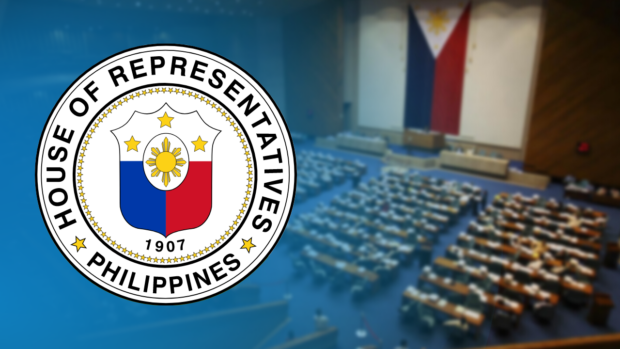
MANILA, Philippines — As deliberations on Resolution of Both Houses (RBH) No. 7 starts, Speaker Ferdinand Martin Romualdez maintains that the mission of the House of Representatives is clear — to amend the economic provisions of the Constitution to improve the lives of Filipinos.
During his speech at the start of the House Committee of the Whole hearings on Monday, Romualdez reiterated that Charter change proponents were only after economic provisions and not any political amendments — as evidenced by RBH No. 7, which has been patterned after the Senate’s RBH No. 6.
“This chamber does not wish for anything else but the welfare of the Filipino people. And we work night and day to make this happen. Now, to dispel doubts that the efforts of the House of Representatives in pushing for the amendment of the economic provisions of the Constitution [are] politically motivated, we are adopting all the three proposed amendments of the Senate version of Resolution of Both Houses No. 6, in toto,” Romualdez said, speaking partly in Filipino.
“This should ensure the public that Congress is only touching on the economic provisions that need to adapt with the changing times. There is absolutely nothing in RBH 7 that hovers on any political provision of the Constitution. Our mission is clear to everyone here. That is to amend the economic provisions that stop the flow of foreign investments, which would create more jobs and boost the economy,” he added.
Care needed in amending the Constitution
Romualdez admitted that the House should be careful in addressing proposals to amend the Constitution because it is not an ordinary bill. According to the speaker, this is why several experts from the government and the private sector have been invited to shed light on discussions.
Romualdez said that some of the resource persons invited have expertise in corporations, foreign direct investments, economic management, education, and advertising.
“This is not just an ordinary legislation. We are talking about the fundamental and supreme law of the land. We have to be very careful, as we always have been, in touching on these reforms. Thus, we also need the help of our experts in the various fields that will be affected by the proposed amendments to the Constitution,” he said.
“We want to create an environment ripe with opportunities where jobs are plentiful, education is world-class, and the fruits of progress are shared by everyone. To do this, we need to break barriers that hold us back. We must pave the way to cross over an era of prosperity, innovation, and inclusivity,” he added.
RBH 7 proposals
Last February 19, Senior Deputy Speaker Aurelio Gonzales Jr., Deputy Speaker David Suarez, and Majority Leader Manuel Jose Dalipe filed RBH No. 7, which proposes the following amendments to the Constitution:
- Section 11 of Article XII (National Patrimony and Economy), where the phrase “unless provided by law” is inserted in the provision that bars foreign ownership of a public utility except in a case where 60 percent of the total capital belongs to Filipino citizens.
- Section 4 of Article XIV (Education, Science and Technology, Arts, Culture, and Sports), where the phrase “unless provided by law” is inserted in the provision that bars foreign ownership of basic educational institutions except in a case where 60 percent of the total capital belongs to Filipino citizens.
- Section 11 of Article XVI (General Provisions), where the phrase “unless provided by law” is inserted in two portions: first, the provision that bars foreign ownership in the advertising industry except in a case where 70 percent of the total capital belongs to Filipino citizens; and in the provision that limits foreign investors participation in entities to how much their capital share is
RBH No. 7 deviates from the House’ RBH No. 6 adopted last March 2023 in terms of specifying which amendments are up for deliberations.RBH No. 7 also proposes a constituent assembly instead of RBH No. 6’s hybrid constitutional convention.
Provisions in the House’ RBH No. 7 and Senate’s RBH No. 6 are also identical except for one portion — the Senate’s resolution said the amendments would take effect with a three-fourths vote of its members, with each chamber voting separately.
On the other hand, the House called for a three-fourths vote of all its members — without specifying joint or separate voting.